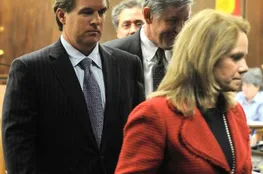J. Richard Munro, the influential executive who played a key role in merging Time Inc. with Warner Communications to create Time Warner Inc., has passed away at the age of 93. Munro started his career in the circulation department of Time Inc. and climbed the corporate ladder to eventually become its chairman and CEO. His most significant accomplishment was engineering the 1989 merger with Warner Communications Inc., forming one of the largest media and entertainment corporations in the world. Munro passed away at a hospice center in Naples, Florida, due to melanoma, as confirmed by his son, John R. Munro Jr.
During his more than three decades at Time Inc., Munro experienced various roles, starting as an ad salesman at Sports Illustrated, moving on to become its publisher in 1969, and later ascending to the corporate executive ranks. He was particularly noted for his role in building HBO into a major subscription cable channel. He became Time Inc.'s president and CEO in 1980 and board chairman in 1986. Leading the company from his Manhattan office in the Time-Life Building, Munro guided it through an era marked by numerous mergers and acquisitions.
In March 1989, Munro, along with Warner Communications chairman Steven J. Ross and Time Inc. president Nicholas J. Nicholas Jr., announced the merger of Time Inc. and Warner Communications. This merger aimed to create a more robust entity less susceptible to takeover attempts. Munro stressed the merger's financial stability, saying it provided a strong balance sheet without requiring layoffs or asset sales. Despite a hostile takeover bid from Paramount Communications, the Delaware Supreme Court eventually approved the Time-Warner merger. Munro retired in 1990, keeping a pledge he had made a decade earlier.
Under subsequent leadership, Time Warner expanded further but faced significant challenges, including the ill-fated merger with AOL. John Richard Munro was born on January 26, 1931, in Syracuse, New York. His parents divorced when he was five, leading him to split his time between New York and Florida. After high school, he served in the Korean War, earning three awards, including the Purple Heart. He later graduated from Colgate University in 1957 and joined Time Inc. the same year. Munro's career also survived setbacks, such as the costly flop of TV-Cable Week magazine.
Munro is survived by his wife of over six decades, Carol Keeney, their three sons, a brother, six grandchildren, and a great-granddaughter. In retirement, he remained active on corporate and nonprofit boards and volunteered as a tutor and mentor to disadvantaged students in Florida. Reflecting on his career, Munro once remarked, "I just went to work every day. It just happened."
























